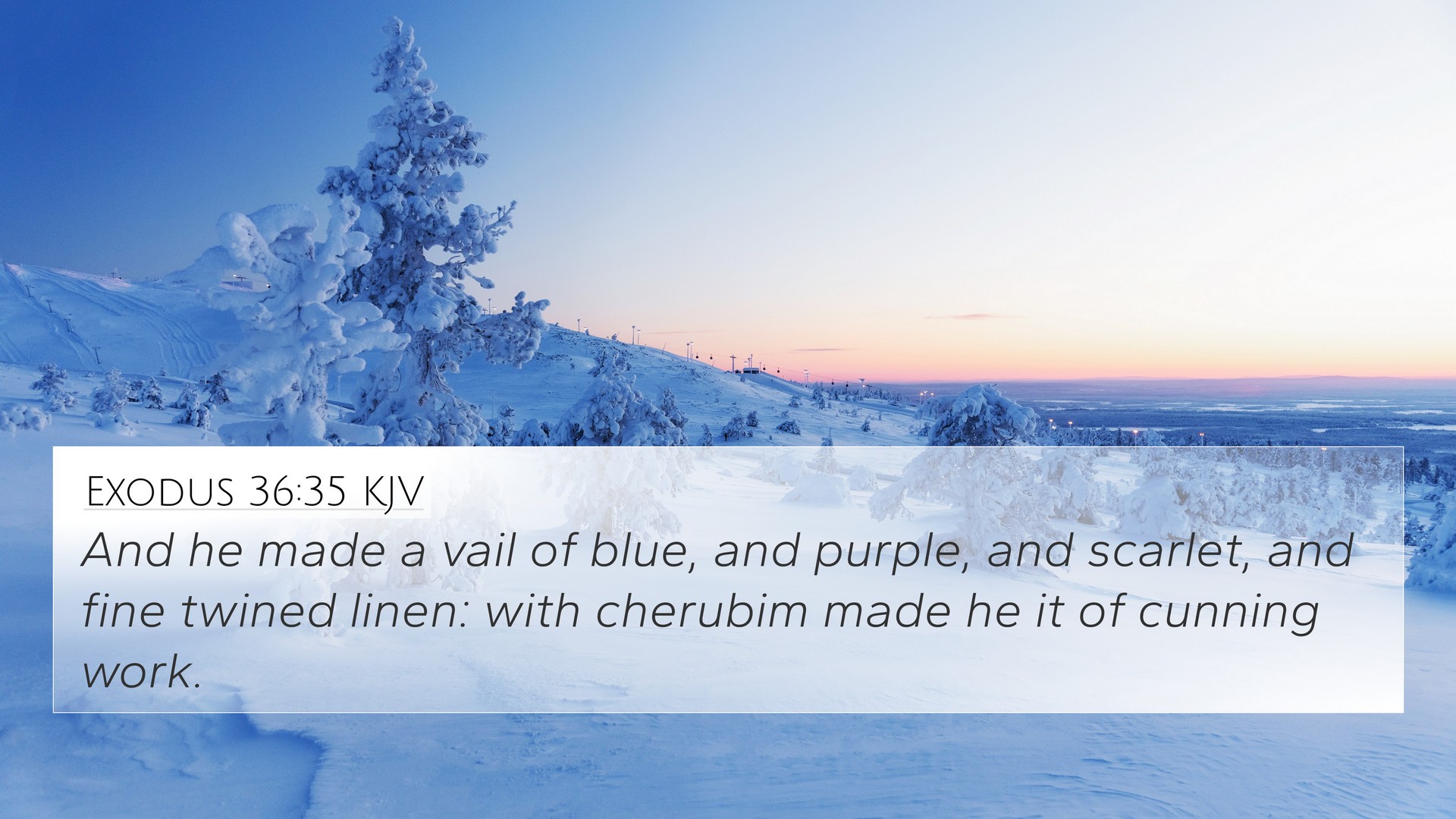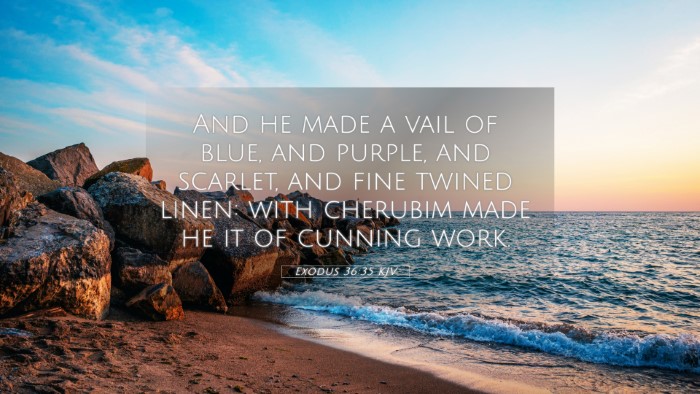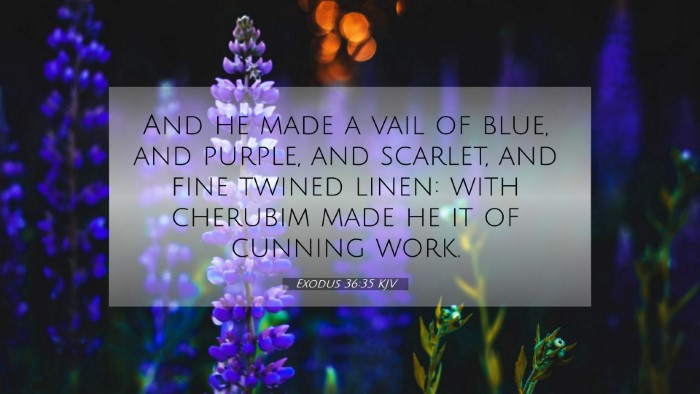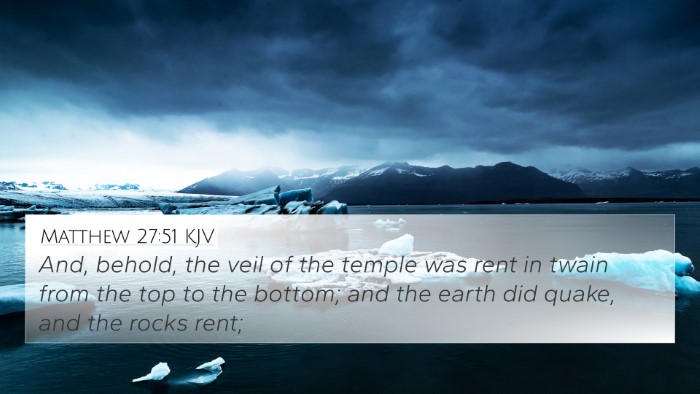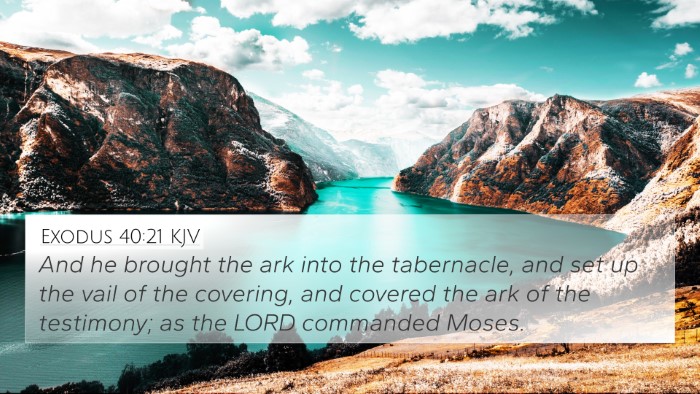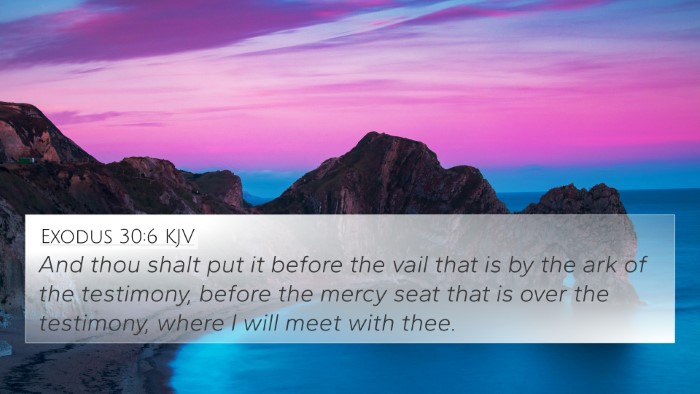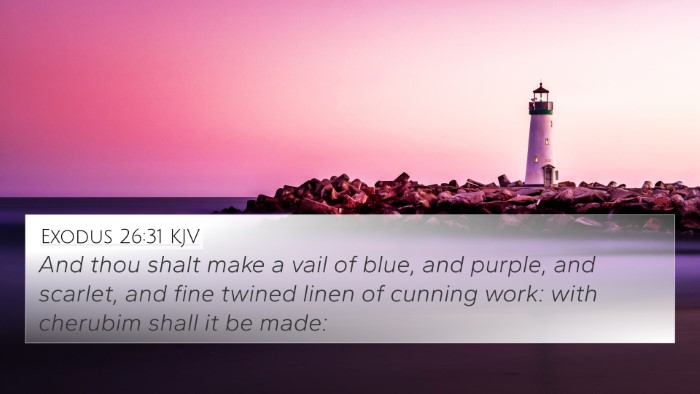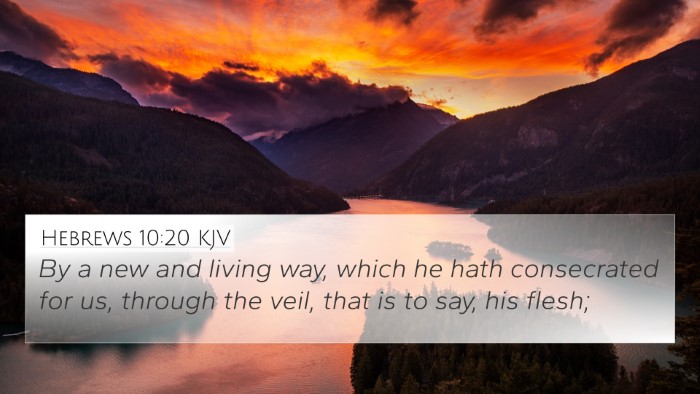Understanding Exodus 36:35
Exodus 36:35: "And he made a veil of blue, and purple, and scarlet, and fine twined linen: with cherubim made he it of cunning work."
Summary of the Verse
This verse describes the construction of a veil for the Tabernacle, which combines various colors and fine materials, along with intricate designs featuring cherubim. The significance of this veil relates to both its physical and spiritual implications in the context of worship and God's presence.
Interpretative Insights
Matthew Henry's Commentary
Matthew Henry highlights that the making of the veil emphasizes the art and skill involved in crafting items for the Tabernacle. The use of blue, purple, and scarlet is symbolic, pointing to the glory of God. The cherubim represent divine guardianship, and the veil itself acts as a barrier, symbolizing the separation between God and man due to sin.
Albert Barnes' Notes
Albert Barnes notes the significance of the colors used in the veil. Blue symbolizes heaven and divine revelation, purple represents royalty, and scarlet indicates sacrifice. The intricate work of the cherubim signifies the presence of holiness, reminding believers of the seriousness of approaching God.
Adam Clarke's Commentary
Adam Clarke adds that the veil serves a dual purpose. It not only offers protection to the sacred space of the Holy of Holies but also signifies the spiritual separation between God and His people. The craftsmanship reflects the glory and excellence of divine creation.
Bible Verse Cross-References
- Matthew 27:51 - "And, behold, the veil of the temple was rent in twain from the top to the bottom; and the earth did quake, and the rocks rent." - This verse connects the veil's function in separating holy space and the significance of Christ’s sacrifice.
- Hebrews 10:20 - "By a new and living way, which he hath consecrated for us, through the veil, that is to say, his flesh." - Here, the veil symbolizes Jesus' body that removes the barrier between God and humanity.
- Exodus 26:31-33 - The detailed instructions for constructing a similar veil for the Tabernacle, illustrating continuity in the setup of sacred spaces.
- 1 Kings 6:21-22 - Solomon's creation of the temple veil, showing how this tradition continued in the grand temple structure.
- Isaiah 6:2 - "Above it stood the seraphims: each one had six wings..." - The mention of heavenly beings connects to the cherubim in the veil, symbolizing the heavenly presence around God.
- Psalms 104:2 - "Who coverest thyself with light as with a garment..." - The idea of God's dwelling place being gloriously adorned parallels the magnificent fabrics of the veil.
- Hebrews 9:3-5 - Reflects on the significance of the Holy of Holies and connects to the verse with a description of the items therein, including the mercy seat overshadowed by cherubim.
Thematic Bible Verse Connections
Exodus 36:35 serves as a pivotal verse in understanding the relationship between God’s holiness and humanity. The veil’s construction emphasizes certain themes and connections:
- Holiness and Access: The veil represents both holiness and the necessity of consecration before entering God's presence.
- Sacrifice: The colors of the veil point to the ultimate sacrifice of Christ, which would fulfill the requirements of the law and offer direct access to God.
- Divine Presence: The cherubim signify the ongoing reality of God's presence with His people and the protective role of the angels.
Cross-Referencing Biblical Texts
Understanding Exodus 36:35 through a wider lens of Biblical texts reveals deeper insights that contribute to a cohesive narrative and teaching across Scripture:
- Tools for Bible Cross-Referencing: Utilizing a Bible concordance or reference system can aid in exploring connections between verses.
- Bible Cross-Reference Guide: Many Bible editions include cross-references that link relevant themes and narratives.
- Inter-Biblical Dialogue: Engaging with both Old and New Testament texts provides a fuller understanding of doctrine and theology.
How to Use Bible Cross-References
Learning how to identify and utilize cross-references in the Bible enhances study and understanding:
- Begin with a specific verse and look for direct cross-references usually found in the margins or footnotes.
- Use thematic studies to connect verses covering similar topics, such as sacrifice or holiness.
- Engage in comparative studies by analyzing parallels in Old Testament rituals and New Testament fulfillments.
Conclusion
Exodus 36:35, while seemingly straightforward in description, opens a gateway to rich theological discourse, symbolic interpretations, and cross-referential insights. The veil is not just an object; it is a profound representation of the need for holiness, the sacrifice that provides access to God, and the artistic expression of divine revelation within the sacred space of worship.
